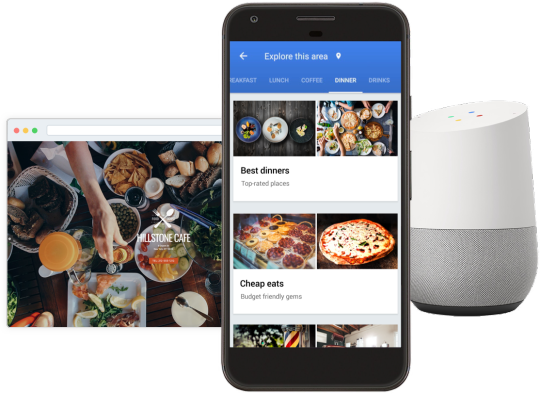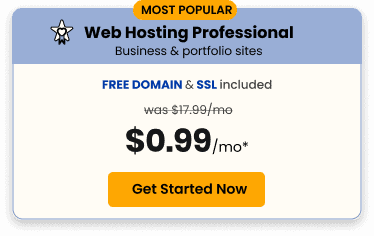When a physical store or small business service opens, installing the store’s sign on the front of the building is a seminal moment that is often captured with photos, celebrated with posts on social channels and toasted with cold beverages. But for most small businesses, a street-front sign is unlikely to dramatically increase foot traffic and it’s a lucky coincidence for someone to run across your business at the same moment they need your service or product.
What’s more likely is that a prospective customer will start their search for a business like yours by opening a laptop or pulling out a phone and doing a local online search. The results they get will usually be a mix of relevant websites and listings for local businesses. Appearing in these local listings is key to you getting these customers into your store or shop, and how your listings appear is as important as a physical sign over your doorway.
Appearing in a local listing search puts you front and center with a customer who is actively looking for a business like your. Your listing tells them where your business is located, when you’re open, what you specialize in, and puts them one click from being able to call or email you.
Which local directories are important?
There are a variety of directories that provide local business listings on the internet. Some will be sites you know, such as Google, Yelp, Yahoo, and Foursquare, while others may be less obvious, such as Superpages (the online version of the proverbial phone book) or TomTom (listings used by navigation devices). There are more than 60 different directories, some catering to networks of websites and others to specific devices.
So, which local directories should a small business focus on if they want to attract new customers?
The short answer: as many as you can. Why? Because unless your small business already has so many customers that you can afford to ignore large parts of your market, you want to be sure you have an opportunity to be discovered by as many potential customers as possible. The most important directory is the one that a local customer is searching in right now, and since you can’t predict which directory that will be, your best plan is to ensure you have complete and accurate local listings in all top directories.
Inaccurate listings hurt your business
Situations you want to avoid include having a local customer look for a business like yours, only to find a list of area competitors that excludes you from consideration. Equally as bad is when a listing for your business appears, but it has inaccurate information, potentially prompting the customer to call a disconnected phone number or telling them you are closed on Saturdays when in fact you’re open seven days a week.
But wait, if the listings are for a business I own, why are some showing incorrect information?
There are a variety of reasons for inaccurate listings and some can keep a small business owner up at night. Some directory listings start out wrong and are created by directories that scrape the internet for information and create local listings based on what they find. This can result in the listing containing a phone number assigned to a former employee and an address that was only used for a special event.
Other times, the information pertains to an older location, a set of services you no longer offer or business hours that you’ve long ago expanded. Unfortunately, all too often the incorrect information was provided to the directory by a villainous competitor trying to get an advantage by making sure your business is cast in a poor light for customers searching online. Other times the inaccurate information comes from an online user who sees your listings and thinks they are correcting a mistake. When a few people make the same “correction,” the new information can end up becoming part of your listing, even if it’s inaccurate.
Add up all these possibilities and it’s no surprise that the unmanaged directory listings for a lot of small businesses end up being inconsistent and frankly confusing for prospective customers looking for you online.

Consistent local listings direct customer to your site
With more than 60 different directory sites out there, is it important that they are all accurate or should a small business owner focus on just those sites that get the most visitors?
The answer is that providing consistent and accurate information across as many directories as possible is important for two primary reasons.
- Consistency can help you appear more often when people search for your business. Search engines are constantly crawling the web and compiling information that they believe pertains to local businesses. When they find inconsistencies, it reduces confidence in that information and could result in your listings being pushed further down in search results – making your business harder to find online. Having information about your business that is consistent across the web can be one of the quickest ways to start improving your search ranking.
- Every customer is potentially a valuable one, and you don’t want them going to a competitor just because they can’t find you on one of the small directories. You never know which potential customer will end up establishing a long-term relationship with your business, perhaps referring a profitable slew of friends and family who also become customers. And just as you can’t predict precisely who those folks will be, you can’t be certain that they only use Yelp or Google when looking for local business and services. Extending your local listing to a wide swath of local directories is like casting a broad net that increases your chance of finding new customers.
When it comes to attracting new customers, as well as helping existing ones connect with you, having local directory listings that are accurate across the web is as important as any other marketing you might do for your business. Creating and updating those listings can be time consuming, but there are some online tools that can make it painless and will pay dividends with new customers and increased sales.
Writer’s bio: Dan Breeden is the head of content and communications for Yahoo Small Business. Prior to that he was the editorial director and a writer for publications around the Pacific and has written for such publications as the Los Angeles Times, The Mercury News, Honolulu Advertiser, Maui News and Inc.com. Find him on LinkedIn.








